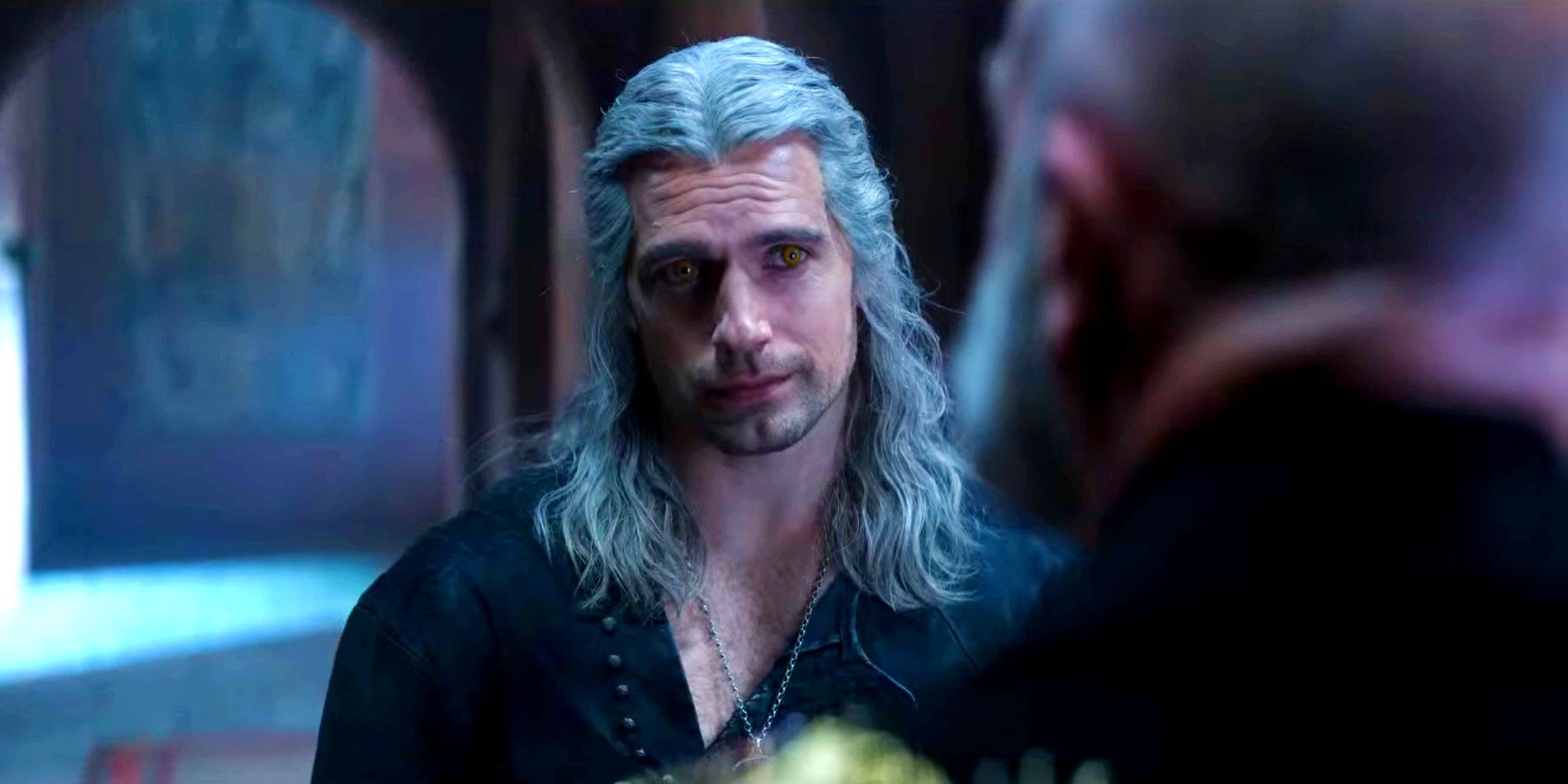The Witcher is moving forward with a fourth season, but without Henry Cavill as Geralt of Rivia, and as shocking as his absence will be, his departure might not be as bad for Netflix as thought. Netflix’s The Witcher quickly became one of the platform’s most popular TV shows after its debut in 2019, and though it has faced some backlash, this universe has continued to expand with more seasons, an animated prequel movie, and a prequel miniseries. Now, the main series is preparing for its fourth season, which won’t have Henry Cavill as the title witcher anymore.
Before The Witcher season 3 was released, Henry Cavill’s departure was announced and Liam Hemsworth was revealed to be the new Geralt of Rivia, making his debut in season 4. Hemsworth’s casting was met with strong reactions on social media, mostly as Cavill’s performance as Geralt is seen as the biggest strength of the show, and after season 3 did nothing to set up the change, concerns about how season 4 will manage to not crash and burn have grown – but a data report from Netflix shows that The Witcher will most likely survive without Henry Cavill.
The Witcher Was Still Popular In 2023, Despite Henry Cavill’s Exit

In December 2023, Netflix released What We Watched: A Netflix Engagement Report, which will be published twice a year with the purpose of providing more information about what its users are watching. The report includes the number of hours viewed for every title, their premiere date, and their global availability, and it has shed some light on the success of The Witcher since season 1. According to Netflix’s report, The Witcher season 1 has a total of 72.2 million hours viewed, with season 2 dropping to 59.3 million hours viewed and season 3 dropping even more with 33.4 million. The report also includes the prequel miniseries The Witcher: Blood Origin, with a total of 65.3 million hours viewed.
While these numbers aren’t massive, especially if compared to those of the top three TV shows on the list (The Night Agent season 1, Ginny & Georgia season 2, and The Glory season 1, with 812.1 million, 665.1 million, and 622.8 million hours viewed, respectively), they are enough to show that The Witcher clearly has an audience that engages with the content long-term. Blood Origin’s number of hours viewed stand out the most as the series didn’t have Henry Cavill and it didn’t do well with critics, yet the audience was welcoming of it. These numbers give hope for The Witcher season 4 to keep the show afloat as the series has built a fandom that continues to watch what this universe has to offer, and if the one series without Cavill’s Geralt got that many views, season 4 can do well, too.
The Witcher Still Has Problems To Fix (& Not Just Henry Cavill)

While Netflix’s report gives hope for season 4 to be well-received by viewers despite Cavill’s departure, it doesn’t mean that The Witcher doesn’t have problems to address. The quality of the series has been in constant decline, with season 2 being the most controversial due to the changes made to Yennefer’s story among other creative decisions. Although The Witcher season 3 fixed some of season 2’s mistakes and was a lot more faithful to the source material, it still couldn’t match the success of the first season. Blood Origin didn’t do well either, so much that it became completely forgettable, so season 4 has to learn from the mistakes of the previous seasons and the prequel miniseries.
The Witcher season 4 can fix some of the problems of the series by including more monsters (after all, the main character is a monster hunter), focusing on developing the main characters, and dropping unnecessary subplots, among other things. Geralt’s recast isn’t the only challenge The Witcher season 4 is facing, and while the series will most likely survive Henry Cavill’s departure, it has to fix its problems if it wants to continue.
